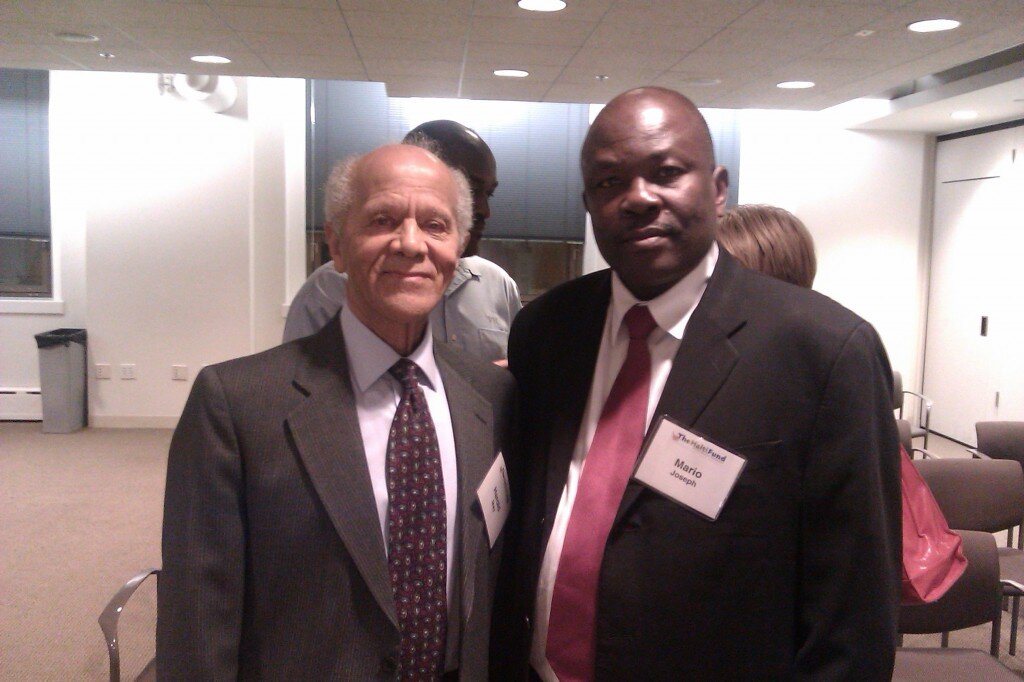Fighting the Failure of the Rule of Law in #Haiti — Mario Joseph, Esq., BAI at the Boston Fdn.
Dr. Benjamin Mays, Founder of Family, Inc. in Verettes Haiti (left) with Mario Joseph, Esq. of BAI (right) at October 27 forum at the Boston Foundation.
Preeminent human rights attorney from Port-au-Prince, Mario Joseph, discussed the current state of human rights in Haiti at a forum sponsored by the Haiti Fund at the Boston Foundation on October 28. The Haitian earthquake did not kill over 200,000 in the “deadly collapse of neighborhoods,” claimed Joseph, but rather the “failure of the rule of law” did. Whereas only two people perished in the Presidential Palace on January 12, 2010, thousands perished on the hills around it because building code laws had not been enforced. Due to disregard for the law, Haiti suffered 230 times more fatalities than Chile, with its subsquent quake, even though Chile’s quake was 500 times stronger.
Joseph, Founder of Bureau des Avocats Internationaux (BAI), works closely with its Boston-based partner organization, Institute for Justice and Democracy in Haiti led by Brian Concannon, Esq. While BAI handles individual and group legal cases and organizes Haitian communities to defend their rights and press for systemic change, IJDH bolsters their work with legal research, media outreach and advocacy in the U.S. and on the international stage.
Joseph noted that many who have left the settlement camps over the past year still remain homeless. Over 100,000 have been evicted illegally from private and public lands without a court order, despite the fact that the BAI & IJDH successfully petitioned last fall the Interamerican High Commission on Human Rights for a moratorium on evictions.
Joseph and his colleague Nicole Phillips, Esq. had just returned from a hearing at the United Nations in Geneva presenting testimony gathered from scores of Haitian civil society organizations as part of the Universal Periodic Review process. Every four years each member nation of the UN undergoes the UPR process,where other nation states publicly assess its human rights record. The Government of Haiti declined to send a representative to hear the testimony. The staff from Haiti’s mission to the UN did, however, attend.
Co-panelist Marie St. Fleur, Director of Intergovernmental Relations for the City of Boston, called for more professional training of judges to “stabilize the courts so people will feel cases will be heard with neutrality.” Haitian judges, noted Mario Joseph, “start at 10 and leave at 2… Haitian law schools teach you the law, but don’t teach you justice.”
For a video recording of the Forum and more information about IJDH and BAI, click here.
The Haiti Fund at the Boston Foundation and the Ansara Family Fund at the Boston Foundation are proud to support these heroes for human rights with grants in 2011.

